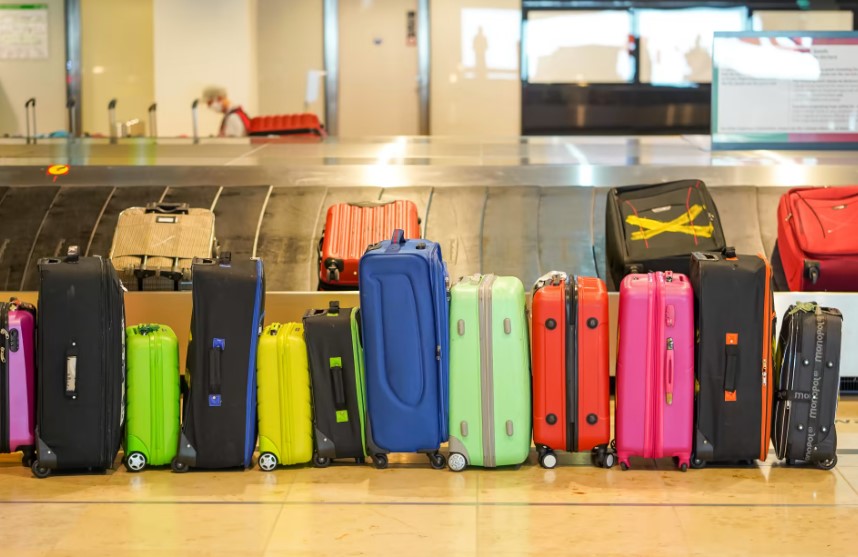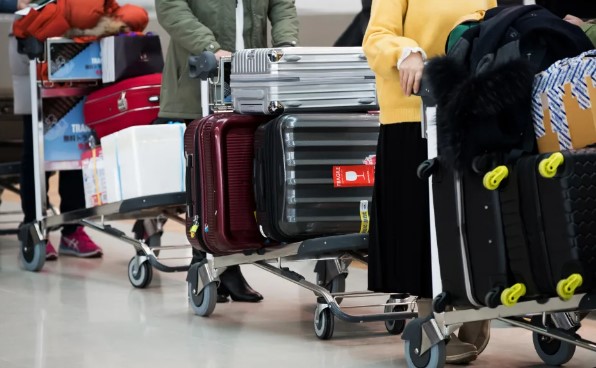
Problem of Lost Luggage: Losing luggage can disrupt the travel experience and have a negative impact on visitors. It often results in wasted time and effort spent tracking down missing bags, added stress due to uncertainty, and potential financial loss if valuable items are not recovered. Visitors may also experience delays in their plans or be forced to purchase essential items while waiting for their luggage to be found. Overall, the loss of luggage can significantly impact the enjoyment of their trip.
Limitations of Barcode Tags: Traditional barcode tags have been commonly used for luggage identification. However, they have several limitations. Barcode scanning requires line-of-sight, meaning each tag must be individually scanned by a barcode reader. This process can be time-consuming, especially during peak travel periods. Additionally, barcode tags are prone to damage and can become illegible if exposed to water, heat, or physical wear. These factors can lead to misreadings or complete failure, resulting in the loss of vital identification information for the luggage.
IATA Resolution 753: To address the challenges of lost luggage, the International Air Transport Association (IATA) introduced Resolution 753. This resolution mandates airlines to track baggage at four key points: check-in, loading onto the aircraft, transfers between flights, and arrival at the destination. By implementing advanced tracking technologies like RFID, airlines can ensure improved accountability and minimize the occurrences of misplaced or lost luggage. IATA Resolution 753 has become a crucial step in enhancing baggage handling processes and customer satisfaction.
Implementing UHF RFID Tags: UHF RFID tags offer a reliable and efficient alternative to barcode tags for luggage identification. Implementing UHF RFID involves attaching small, battery-free tags to each piece of luggage. These tags contain a unique identifier that can be read wirelessly using RFID readers. The benefits of UHF RFID tags include:
1) Enhanced Efficiency: UHF RFID tags allow for simultaneous scanning of multiple tags without requiring line-of-sight. This significantly speeds up baggage handling processes, reducing waiting times for travelers and enhancing overall operational efficiency.
2) Improved Accuracy: UHF RFID tags provide more accurate identification and tracking capabilities compared to barcode tags. They can withstand environmental factors such as water, heat, and physical stress, ensuring reliable data capture throughout the journey.
3) Real-Time Tracking: RFID technology enables real-time tracking of luggage, allowing airlines and passengers to monitor the whereabouts of their bags at any given moment. This feature enhances transparency and enables quick actions in case of deviations or misplaced luggage.
4) Decreased Loss and Theft: With UHF RFID tags, the chances of luggage being lost or stolen are significantly reduced. The continuous monitoring and tracking capabilities enable swift retrieval and minimize the likelihood of bags being misplaced or removed without authorization.

Conclusion: The utilization of UHF RFID tags in luggage brings numerous benefits to visitors. By addressing the problem of lost luggage and overcoming the limitations of barcode tags, UHF RFID technology provides efficient and accurate baggage identification and tracking. With initiatives such as IATA Resolution 753 driving the adoption of advanced tracking systems, visitors can experience a more seamless travel experience, with reduced stress and greater peace of mind
